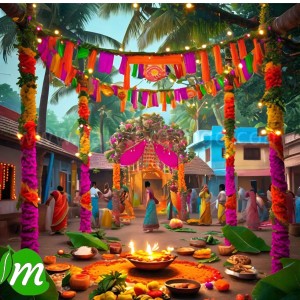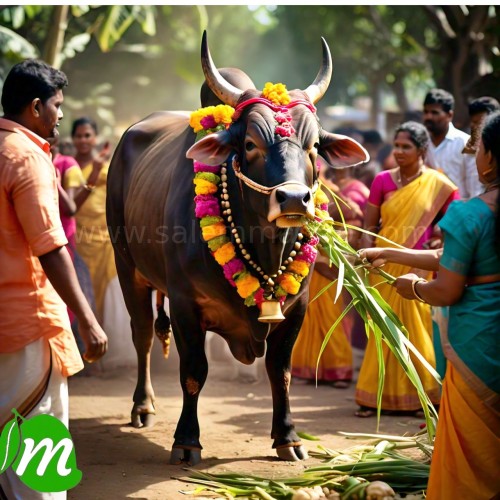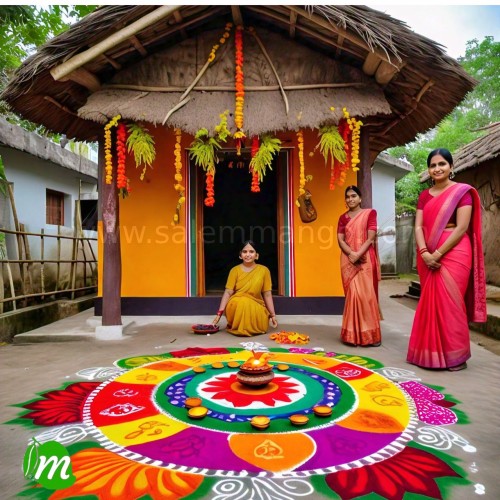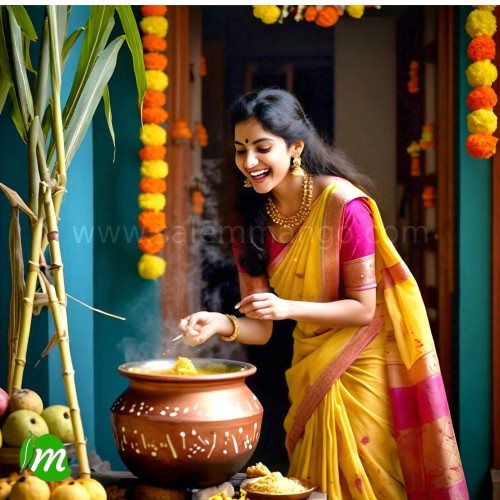5 mins read
Last updated : 28-10-2024
Pongal Celebrations from Farmers and Offers
Pongal is a significant harvest festival in South India, particularly in Tamil Nadu, celebrated over four days in mid-January. Here's its importance: Back to traditional activity is pongal.

Cultural Significance
Pongal honors the sun god, Surya, and the goddess of rice, Lakshmi, expressing gratitude for the harvest.
Agricultural Importance
Pongal marks the beginning of the harvest season, acknowledging farmers' hard work.
Unity and Family
Pongal brings families together, strengthening bonds and promoting social harmony. Dressing up in traditionally makes festival more colorfull.
Religious Significance
Worship of Surya
Pongal is dedicated to Surya, the sun god, who nourishes life
Honoring Goddess Lakshmi
Pongal celebrates Lakshmi, the goddess of prosperity and fertility.
Purification and Renewal
Pongal rituals symbolize purification, renewal, and new beginnings.
Traditional Practices of Pongal preparations
A sweet dish made from rice, lentils, and jaggery is cooked in clay pots.


How to decorate for Pongal
Homes are decorated with kolams (rangoli), flowers, and sugarcane.


Music and Dance
Traditional music and dance performances, like Kummi and Oyilattam.
How to Cow Worship in Pongal Festival - Mattu Pongal
Cows are revered as sacred animals, essential for agriculture.
Economic Importance
Boost to Agriculture - Pongal encourages farmers to prepare for the next crop cycle
Local Economy
Pongal festivities generate revenue for local businesses.
Social Importance
Community Bonding
Pongal fosters social cohesion and community spirit.
Charity and Giving
Pongal encourages charitable activities and donations.
Pongal's significance extends beyond its cultural and religious roots, encompassing social, economic, and environmental aspects, making it a vital part of Tamil
Pongal is celebrated under different names in various regions and cultures
Pongal in other countries by Tamil culture people
Regional Variations of Pongal In India
Pongal Festival in Other names
These diverse names reflect the shared cultural heritage and traditions across regions, celebrating the harvest season and sun's journey. overview of the 4-day Pongal celebrations
How Pongal Celebrated in 4 Days
First day of Pongal / Thai Pongal
Date---Typically falls on January 13th or 14th of English calendar
Celebrates the goddess Indra, the ruler of clouds and rain
Day 2: Surya Pongal
Date ----Typically falls on January 14th or 15th
Honors the sun god, Surya
Day 3: Mattu Pongal
. Date: Typically falls on January 15th or 16th
Celebrates cattle and livestock
Day 4: Kaanum Pongal
Typically falls on January 16th or 17th
Celebrates family reunions and social bonding
Common practices throughout the 4 days of Pongal
Pongal celebrations vary across regions and communities, but these core rituals and traditions remain an integral part of this harvest .


Happy Pongal o Pongal from Salemmango Farmers